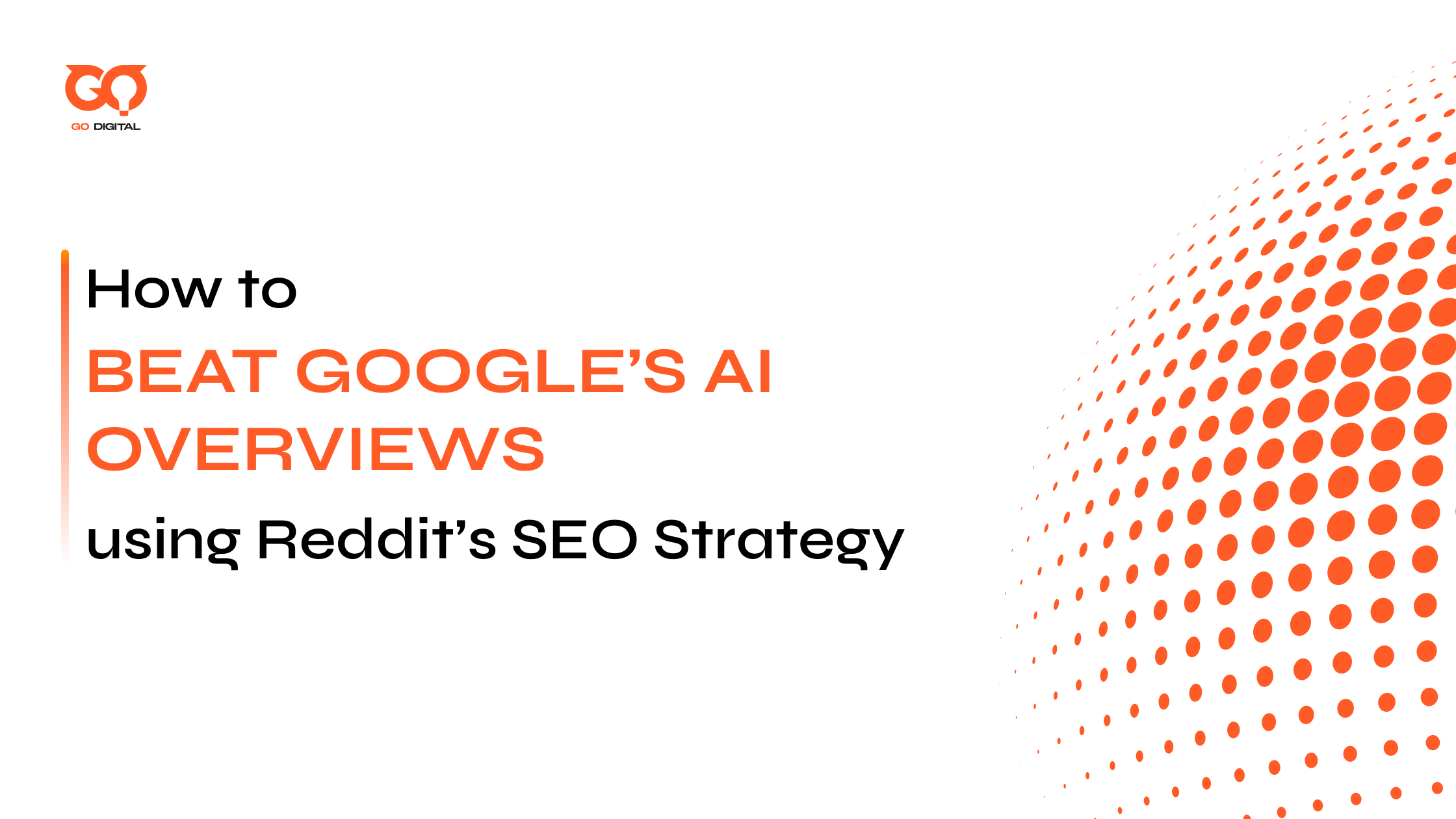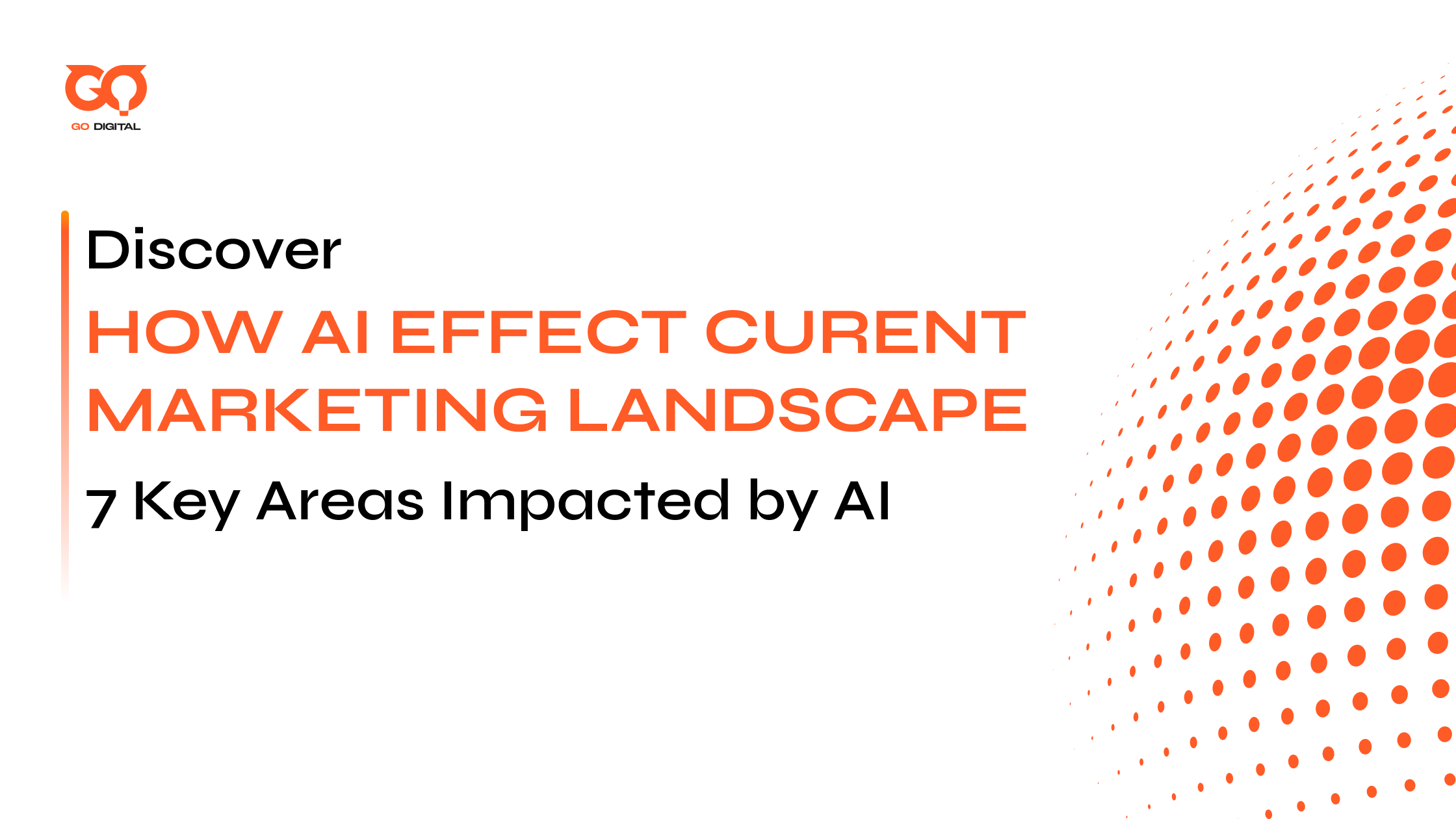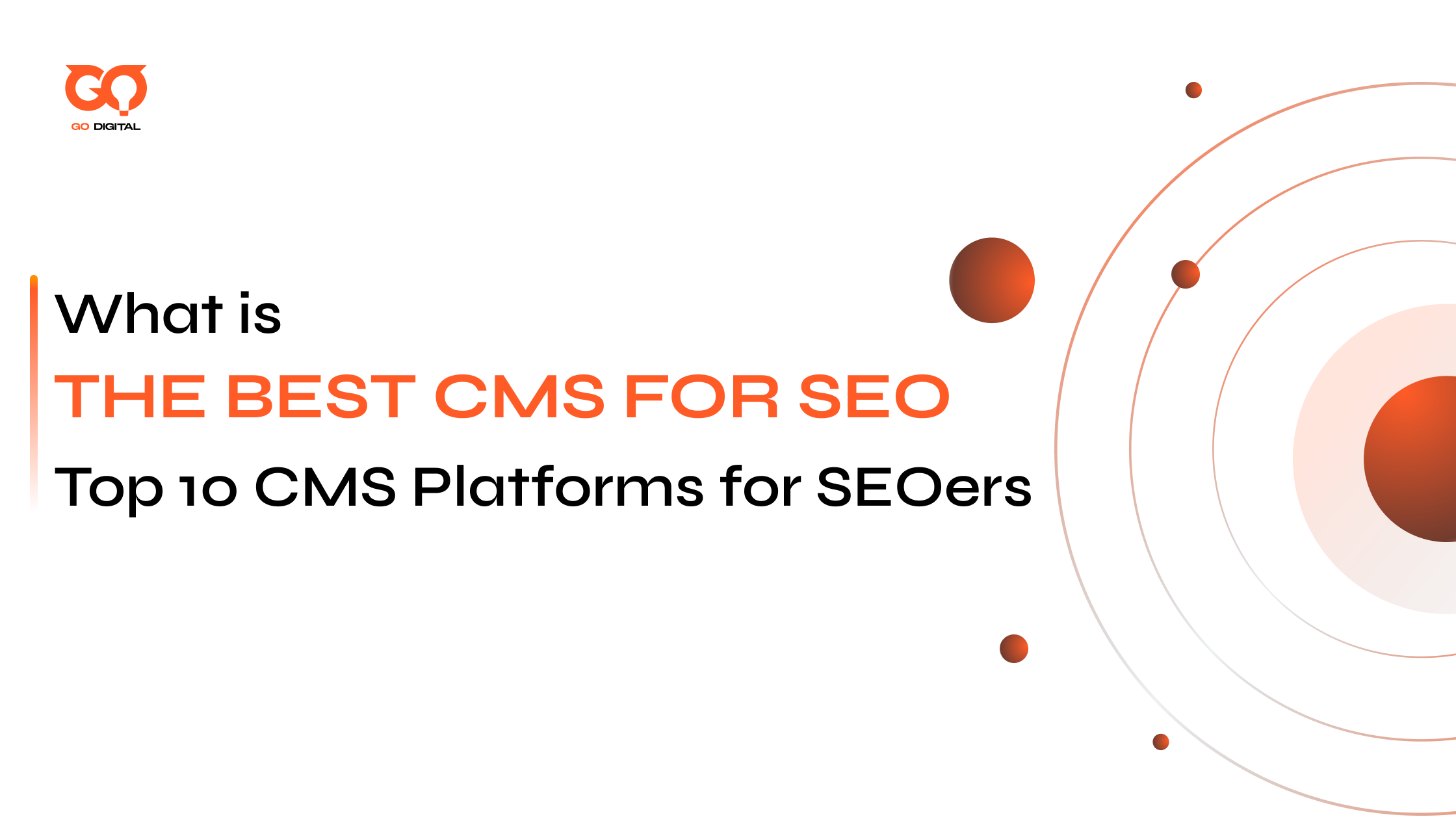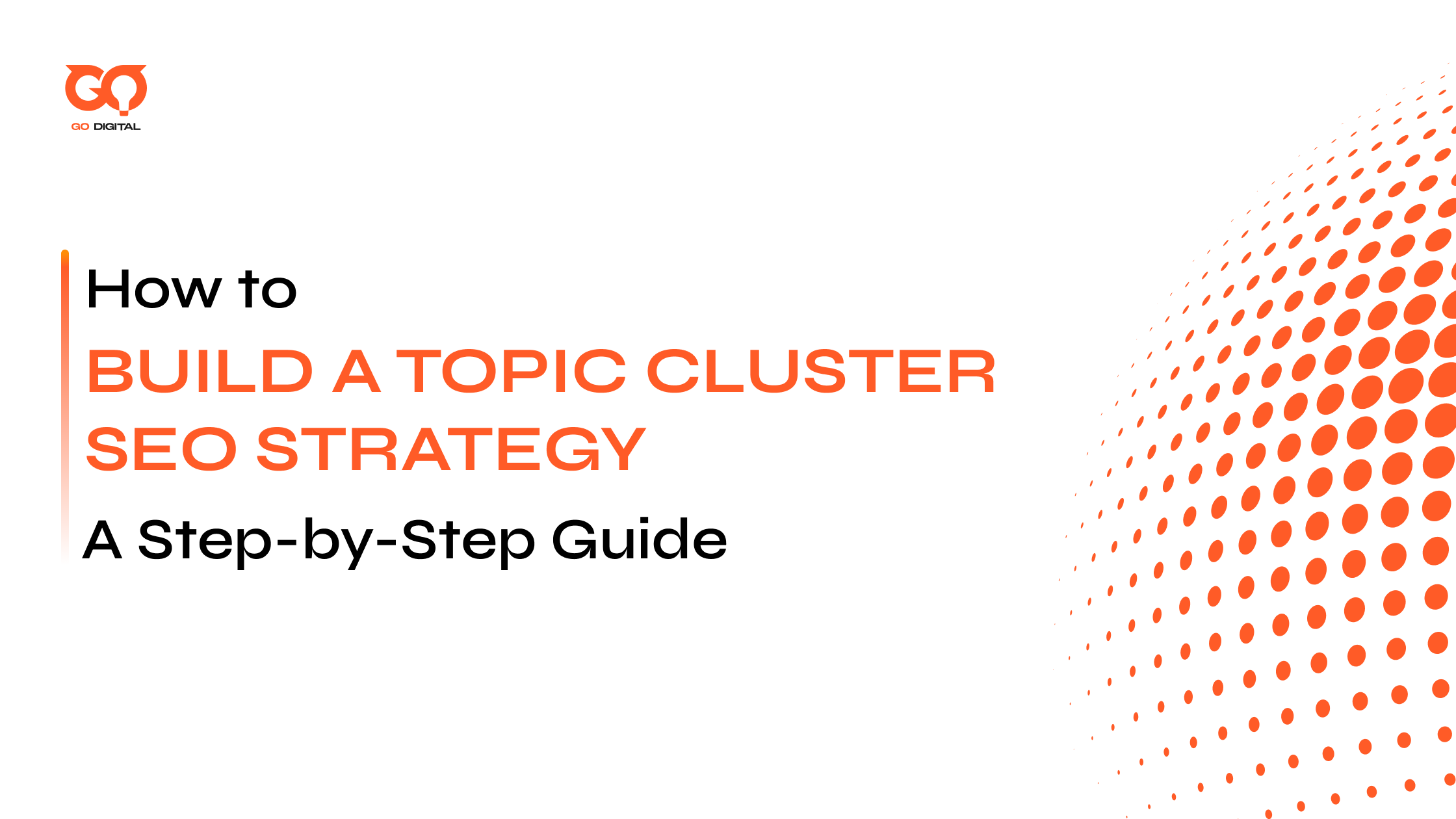I’ll be honest—watching my site’s impressions rise while clicks drop feels like getting a high five and a punch in the gut. For a minute, I wondered if I was just screwing up. Spoiler: it’s NOT just me.
The wake-up call? Late-night scrolling on r/SEO—dozens of bloggers and agency folks venting about AI Overviews and Google’s new tricks eating up their traffic. Weirdly, it’s a relief to know I’m not the only one.
If your stats look loco and you’re questioning if SEO is broken, welcome to the club. Here’s the kicker: Reddit has real strategies people are actually swapping, testing, and sometimes cursing about.
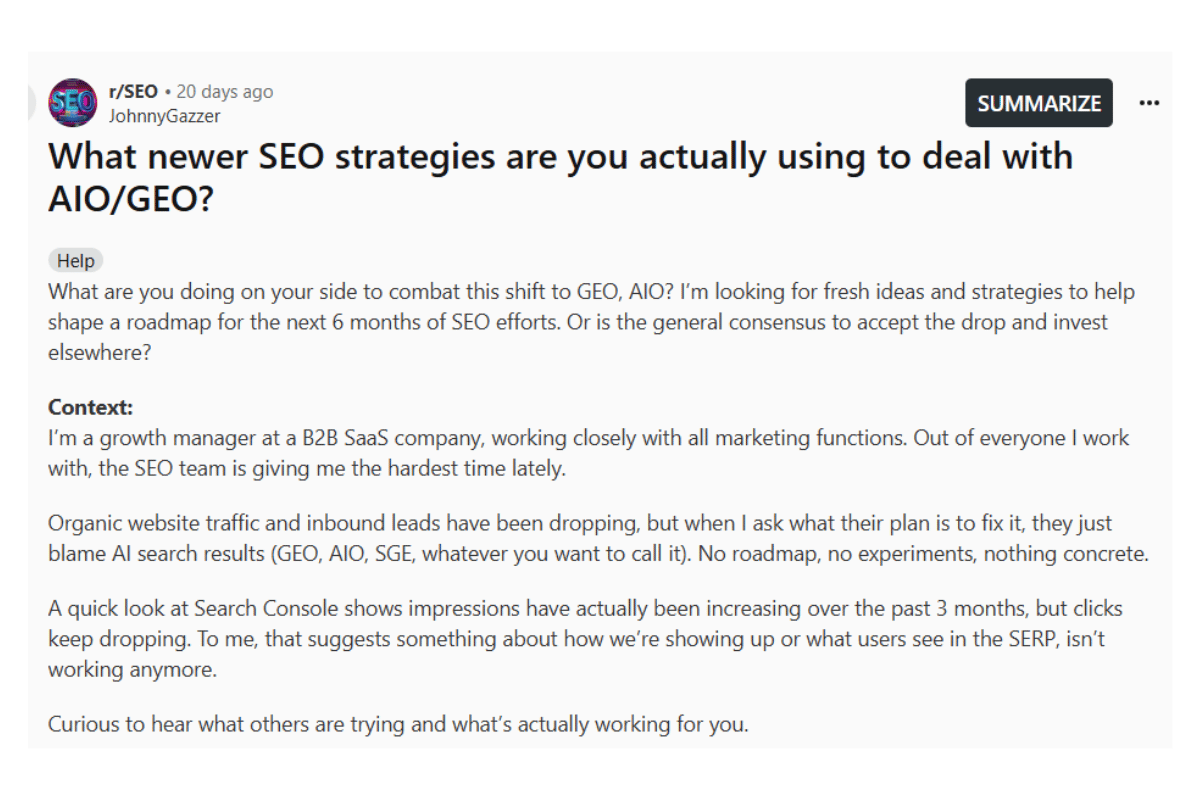
1. What’s AIO/GEO & Why Are We All Freaking Out?
AIO stands for AI Overviews—the new Google cards that answer people’s searches right on the results page, using a mashup of info scraped from top-ranking sites (sometimes yours, sometimes your competitors’). No click needed. GEO? That’s Generative Engine Optimization—meaning the entire SEO game is now about showing up not just in blue links, but inside those AI-generated answers.
Why is everyone losing sleep? Because Google is basically using our best content to “help” searchers—keeping them on Google, not sending them to our sites.
Suddenly, it’s not just about optimizing for a #1 spot. It’s about making your content so specific, authoritative, and memorable that people want to click through—even when Google is showing them 90% of the answer up front.

Long story short: We’re freaking out because the old SEO playbook is outdated. But it’s also a wild new sandbox to figure out… if you’re willing to adapt.
3. What Real SEOs Are Actually Doing (Reddit’s Top Ideas + My Results)
a. Go Ultra-Deep With Long-Tail & FAQs
On Reddit, I kept seeing the same advice: “Flood your content with hyper-specific FAQs. Go off the beaten path—don’t just mirror what AI Overviews scrape.” I thought it sounded a little wild, but what did I have to lose?
So, for one boring “how-to” post stuck on page 2, I rebuilt it around 12 nichey questions—stuff like “What do I do if X tool breaks at 2AM?” or “Is this trick safe in 2025?”
After publishing, my impressions didn’t just rise; the clicks actually improved—because those buried questions weren’t covered by AI, but they spoke directly to Reddit-style searchers.
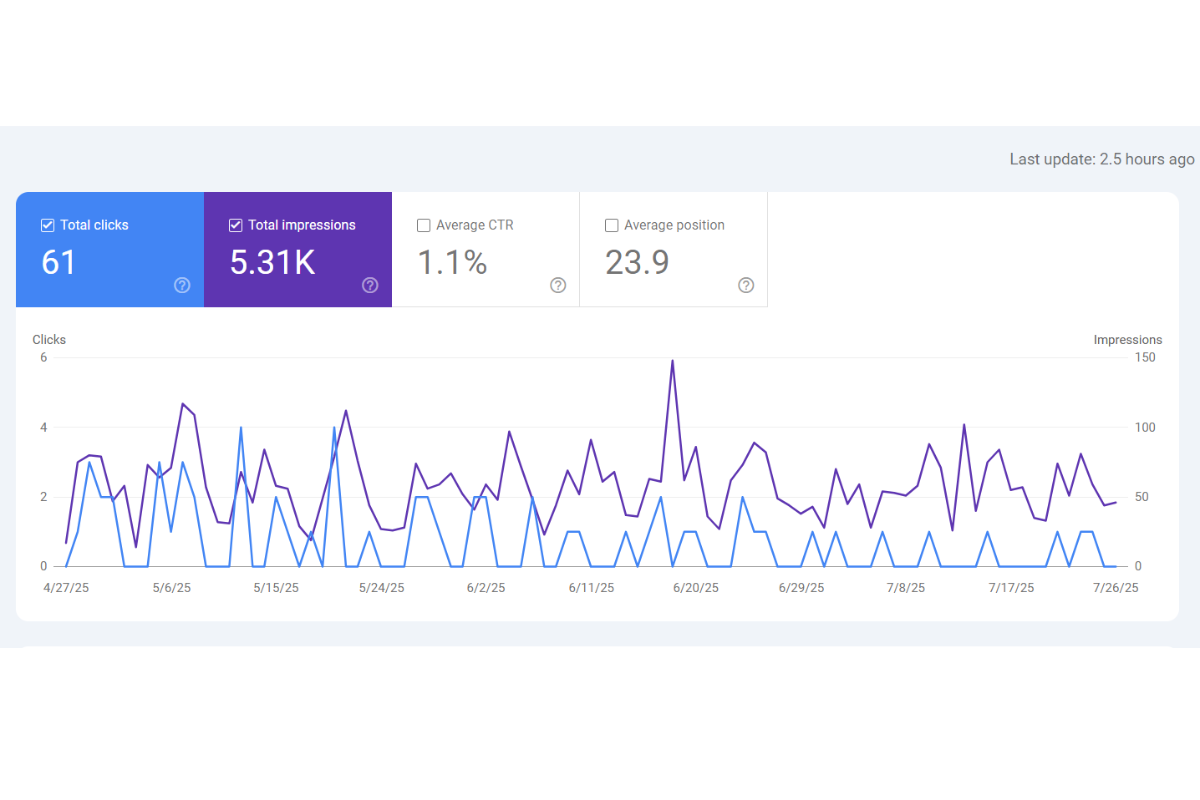
If I could show you a screenshot, it’d be a steady traffic bump right when the FAQ update hit.
b. Double Down on Topic Authority
Reddit folks are big on “clusters”—not just one giant mega-post, but a series of tight, linked articles all around the same topic.
I took that to heart: instead of just one guide on “local SEO,” I spun out 6 short posts—covering reviews, Google Business hacks, weird local schema, even how to spot spam listings. Linked them all together.
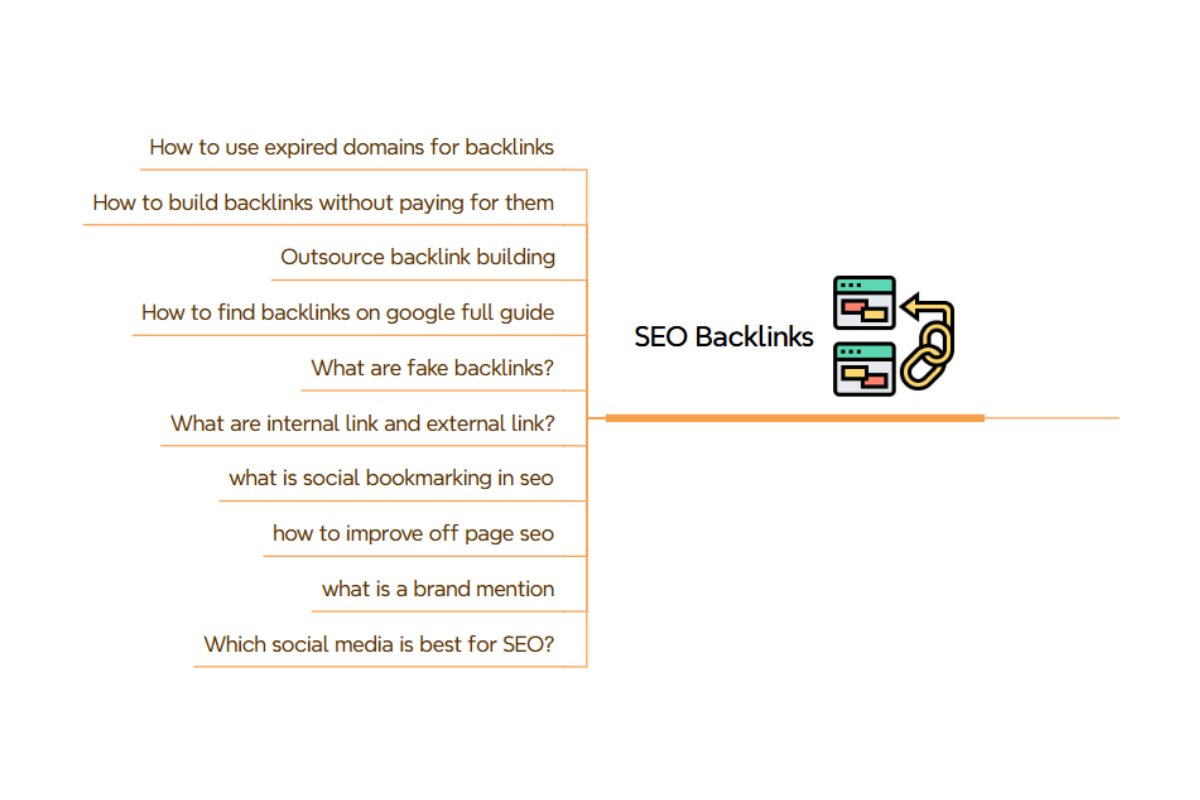
This is my topic cluster for “SEO Backlinks”
The wild part? My bounce rate dropped, people stayed around to read two or more articles, and rankings for every post started crawling back up.
My analytics looked less like a flatline, more like a slow-and-steady staircase.
If you’re seeing crickets, build out your own mini-cluster—Reddit’s not wrong here.
c. Brand Mentions & Community Drops
Here’s one I never really thought about until Reddit: It’s not all about backlinks.
Redditors swear by just getting your brand named in public answers, honest reviews, and user stories anywhere people talk shop.
I jumped into a few Quora threads and Reddit discussions—not as a shill, but by actually helping. Dropped my brand when I could, never pushed for a link.
Surprise: referral spikes from both forums, steady for weeks.
Google Analytics sometimes didn’t catch it all, but my inbox told the real story.
Action tip: next time someone asks for a resource, offer your insight (and ask them to tag your brand if they liked it).
Honest reviews > sketchy backlinks, every time.
d. Multi-Channel Everything
Don’t leave your hard work hidden away on your site. I started slicing up my best answers: snippets posted on Reddit, quick videos on YouTube, reworded tips on Quora.
One video FAQ—honestly, barely cracked 20 YouTube views—but suddenly, I saw referral traffic to my site from YouTube, and the video even popped up in Google’s AI snapshot for a niche question.
Bottom line? Multi-channel isn’t just buzz. It’s free insurance against Google eating all your traffic.
If your best answer lives in three places, something’s bound to stick.
4. Checklist: Try This Week (Stolen, Tested, Made My Own)
- Pick one old blog post and add 7 weird or super-specific FAQ questions you see people ask on Reddit.
- Track brand mentions and referral traffic—not just what shows up in Search Console! Use tools like BrandMentions, check analytics for Surfer/Quora/Reddit spikes, and monitor your inbox for offbeat feedback.
- Launch one answer in a niche community (Reddit, Quora), with real insights and, if it fits naturally, a gentle link.
- Shoot a quick video—answering one question nobody else is brave enough to tackle. Add the transcript to your site.
- Watch which FAQs or content types show up in new AI Overviews—double down on those for your next content sprints.
5. Real Lessons & Encouragement
If there’s one thing this whole SEO/AI storm taught me (and Reddit backed me up), it’s this:
None of us have it all figured out. The folks who actually win are the ones who test, break stuff, share what flopped, and circle right back with a new experiment.
Your traffic tanking isn’t the end of your story. It’s just a nudge to create, tweak, try what the crowd’s too busy complaining to attempt.
Keep it real—get scrappy—and remember, even one risky FAQ or offbeat channel can flip your results in 2025.
You’re not in this alone. And the best answers are the ones we swap, tweak, and make our own.

Jaden is an SEO Specialist at Golden Owl Digital. He helps brands rank higher with technical SEO and content that resonates

